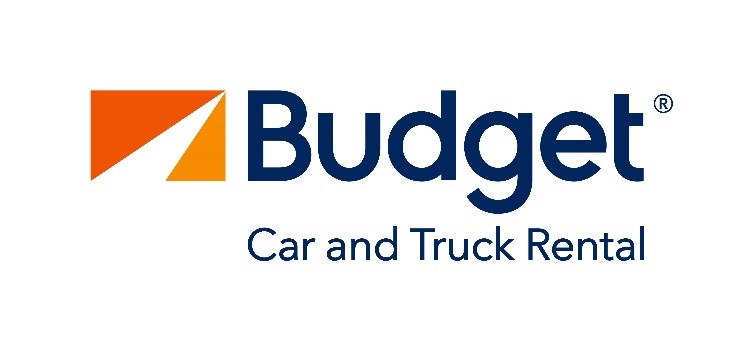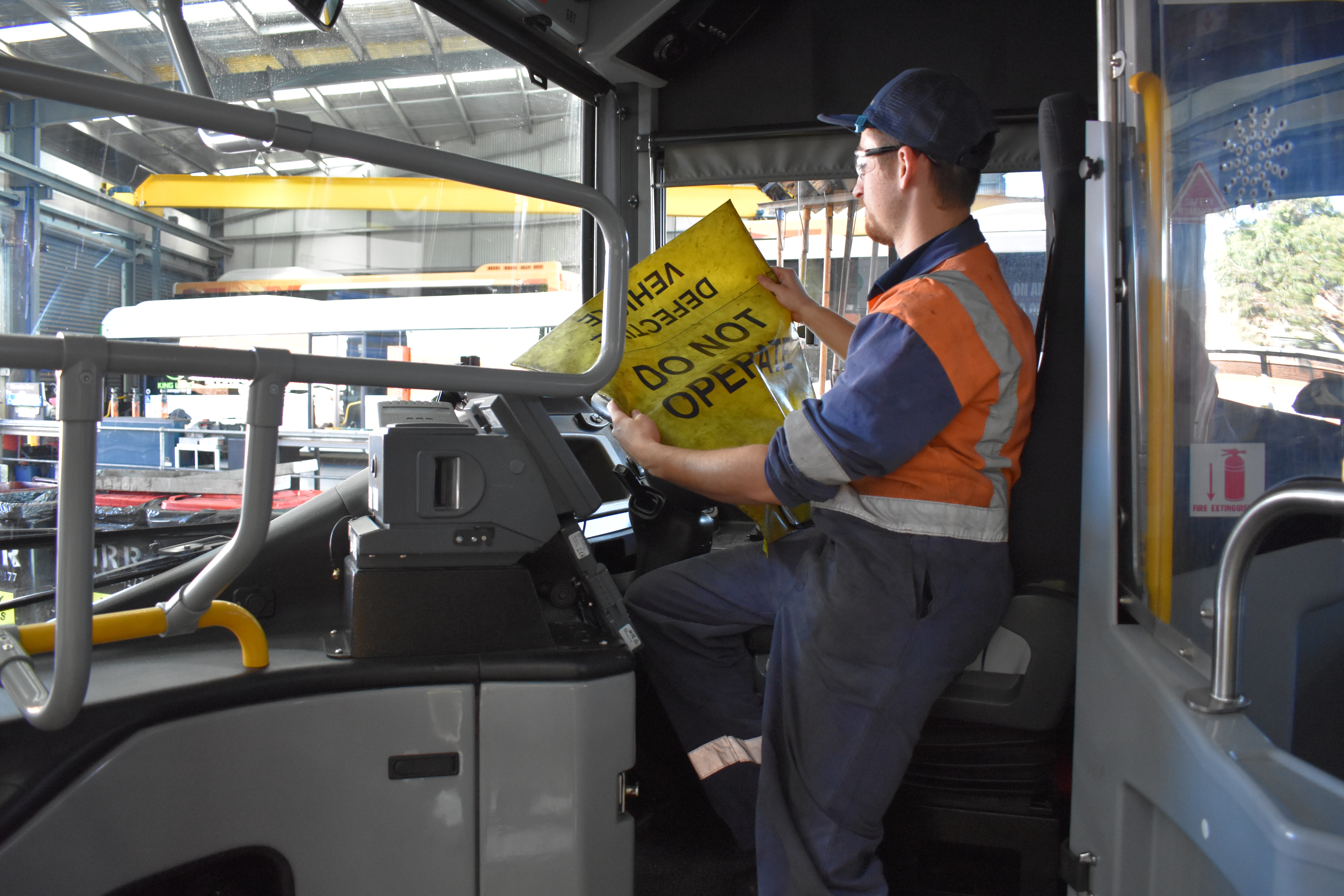Information
-
Contractor's Name
-
Assessor
-
Conducted on
-
Front Cover Title (Contractor Entity Name)
Service Description
-
Service Name
-
Contract Number
-
Contract Type
-
Education Support Service
-
Is this bus currently carrying students who require wheelchairs?
-
Mainstream Service
-
Does a Bus Aide travel on this service?
-
Is this service operated in a remote location of WA?
-
Is this service operated remotely from the Contractor's main place of business?
-
Role of the person responding to the questionaire?
- Driver
- Relief Driver
- Bus Aide
- Relief Bus Aide
- Other
-
What is the role of the respondent?
1.0 - Vehicle Checking and Roadworthiness
-
1.1 - Vehicle Daily Checks
-
Scope (Information for Assessor)
Confirm whether a driver or a suitably qualified individual undertakes the vehicle pre-start checks. -
1.1.1 - Are vehicle pre-start checks done before the bus is used each day?
-
How are vehicle checks completed?
-
Evidence
-
Vehicle Pre-start Checklist - completed example
-
How do you know the vehicle is safe to drive?
-
1.2 - Vehicle Defect Reporting
-
Scope (Information for Assessor)
Determine if a system of vehicle defect checking, reporting and tagging out of unroadworthy vehicles is in place.
Note: Tagging out of vehicles is normally used where a person other than the allocated driver can have access to the vehicle., e.g. the vehicle is in a depot. Therefore, it may not be necessary for single operator to have a formal tagging out process. -
1.2.1 - Do you report vehicle defects?
-
How do you report vehicle defects?
-
Where a vehicle is unsafe to use, how would you know not to use the vehicle?
-
How do you know when repairs have been completed and it's safe to use?
-
Evidence
-
Evidence - Defect Notice
-
1.2.2 - How do you know the bus is safe to drive?
-
Recommendations
-
Recommended Actions:
-
Vehicle Checking and Roadworthiness
-
Corrective Actions Required
-
Corrective Action
-
Action Date
- Specify date
- Immediate
- 1 week
- 2 weeks
- 1 month
- On going
-
Select date
2.0 - Passenger Management
-
Scope (Information for Assessor)
Determine if Bus Staff are able to readily access information on students to enable them to manage individual circumstances of the students that travel on the service. -
Type of Service
-
2.1 - Do you have a passenger list?
-
2.1.1 - How do you know whose on your bus each day?
-
2.1.2 - How do you manage student information? Particularly, contact details and the individual needs of students.
-
2.1.2 - How do you keep the passenger list up to date?
-
2.2 - Do you check the bus at the end of each run?
-
2.2.1 - Where do you check the bus?
-
If other, where is the bus checked at the end of each run?
-
2.2.2 - Do you use a list to check students on and off the bus?
-
Evidence - student checklist
-
2.2.3. - How do you know all of the students have left the bus and are not at risk of being left on the bus?
-
2.3 - Are there any students who travel on the school bus that have medical conditions?
-
2.3.1 - If yes, how do you manage students with medical conditions?
-
Evidence - Medical Action Plan
-
2.4 - What action would you take if you were advised that a student was diagnosed with a medical condition?
-
2.5 - Do you carry students who have special needs?
-
2.5.1 - What special requirements do these students have while travelling on the bus?
- Education Support
- Physical Mobility
- Other Impairment
- Other
-
2.5.2 - Have you been given instructions on how to manage the circumstances of these students?
-
If you aren't provided with instructions on how to manage these students, how do you know what to do?
-
Evidence - Integrated Care Plan
-
2.1 - Do you have a passenger list that contains current contact details?
-
2.1.1 - How do you keep the passenger list information up to date?
-
2.2 - Do you check the bus at the end of each run?
-
2.2.1 - Where do you check the bus?
-
If other, where is the bus checked at the end of each run?
-
2.2.2 - How do you know all of the students have left the bus and are not at risk of being left on the bus?
-
2.3 - Do you have Integrated Care plans for the students that travel on your bus?
-
Evidence - Instructions / Care Plans
-
How do you manage these students and their needs?
-
Recommendations
-
Recommended Actions
-
Student Management is managed appropriately
-
Corrective Actions Required
-
Corrective Action
-
Action Date
- Specify date
- Immediate
- 1 week
- 2 weeks
- 1 month
- On going
-
Select date
3.0 - Service Contingency Planning
-
Scope (Information for Assessor)
Issues that may interrupt the provision of the service have been identified and appropriate instructions have been provided to the driver.
Contact details for individuals and/or organisations that may be needed in the event of a service delay/interruption have been identified, recorded and are easily accessible in the school bus. -
3.1 - Have you been given information and instructions on what actions to take if delays or interruptions occur during the bus run?
-
3.1.1 - What contingency issues have been identified that specifically relate to this service?
- Vehicle Breakdown
- Student Medical Emergency
- Vehicle Accident
- Bush FIre
- Fire on the Bus
- Student Behaviour Incident
- Environmental Incident: Cyclone/Flood etc
- Other
-
Other identified contingencies:
-
3.1.2 - How do you know what actions to take?
-
3.2 - Do you have the contact details for people you may need to contact if the service is delayed?
-
3.2.1 - How do you advise people that you're delayed?
-
Evidence - Contact List
-
Recommendations
-
Recommended Actions
-
Is the contingency planning appropriate for the type and location of the service?
-
Corrective Action Required
-
Corrective Actions
-
Action Date
- Specify date
- Immediate
- 1 week
- 2 weeks
- 1 month
- On going
-
Select date
4.0 - Student Behaviour Management
-
Scope:
1. Confirm the PTA's Behaviour Management Guidelines have been implemented and specifically in context of the types of students that travel on the school bus,
2. Behaviour Management Notices are used appropriately, and
3. families are effectively communicated with as a result of a student's poor behaviour.
-
Type of Service
-
4.1 - Do you use the PTA's Behaviour Management Guidelines to manage student behaviour?
-
How do you manage students' poor behaviours?
-
Evidence of alternative instructions
-
What areas of the BMGs are being used?
-
Do you issue Behaviour Management Notices?
-
Evidence - Behaviour Management Notice
-
How do you report student's poor behaviours?
-
Evidence - Alternative Behaviour Management Notice (if any)
-
Do you issue Behaviour Management Notices?
-
Evidence - Behaviour Management Notice
-
How do you report students' poor behaviours?
-
Evidence - Alternative Behaviour Management Notice (if any)
-
4.1 - Do you use the PTA's Behaviour Management Guidelines to manage student behaviour?
-
How do you manage students' poor behaviours?
-
Evidence of alternative instructions
-
4.1.2 - Do you use Behaviour Management Notices to report poor performance?
-
Evidence: Behaviour Management Notice
-
What forms do you use to report students' poor behaviours?
-
4.2 - Do you communicate with parents/carers in relation to students' poor behaviours?
-
4.3 - What types of special needs do the students on your bus have?
- None
- Education Support
- Medical Condition
- Physical Mobility Issue
- Hearing Impairment
- Vision Impairment
- Other
-
Other (list)
-
How do you alter your behaviour management strategies?
-
Recommendations
-
Recommended Actions
-
Is Student misconduct managed appropriately?
-
Corrective Actions Required
-
Corrective Action
-
Action Date
- Specify date
- Immediate
- 1 week
- 2 weeks
- 1 month
- On going
-
Select date
5.0 - Incident and Hazard Management
-
Scope:
Determine if appropriate systems are in place for bus staff to record, report and manage incidents and hazards. -
5.1 - Have you been given training and instruction on managing and reporting incidents and hazards?
-
5.2 - Do you report incidents, hazards and near misses?
-
5.3 - Do you have access to forms for reporting incidents and hazards?
-
Incident or Hazard Report Form
-
After you report incidents/hazards are you advised of the outcome?
-
How do you receive feedback?
-
How do you know if the hazard has been managed?
-
How do you report Incidents and Hazards?
-
Recommendations
-
Recommended Actions
-
Incident and Hazard Management systems in place and appropriate for use in this service?
-
Corrective Action Required
-
Corrective Action
-
Action Date
- Specify date
- Immediate
- 1 week
- 2 weeks
- 1 month
- On going
-
Select date
6.0 - Bus Staff Instructions
-
Role
-
Role of Respondent
-
Name:
-
Type of Service
-
6.1 - Do you have a set of instructions regarding your role?
-
How do you know how to do your job?
-
Evidence of Job Description Statements
-
6.2 - Do you sign off each day before commencing work that you are fit for work, that is you are not affected by fatigue and have a BAC of zero?
-
Evidence - Fitness for Work sign off
-
What do you do to manage your fatigue?
-
6.1 - Do you have a set of instructions regarding your role?
-
How do you know how to do your job?
-
Evidence of Job Description Statements
-
Role
- Driver
- Bus Aide
- Bus Warden
- Contractor
- Other
-
Role of Respondent
-
6.2 - Do you sign off each day before commencing work that you are fit for work, that is you are not affected by fatigue and have a BAC of zero?
-
What do you do to manage your fatigue?
-
Recommendations
-
Recommendations
-
Do the bus staff have the appropriate instructions and information to undertake their roles safely?
-
Corrective Action Required
-
Corrective Action
-
Action Date
- Specify date
- Immediate
- 1 week
- 2 weeks
- 1 month
- On going
-
Select date
7.0 - Induction
-
7.1 - Before you started work on the school bus, were you inducted into the role?
-
7.1.1 - If there is no formal induction process, how did you know how to do your job?
-
7.2 - Where you informed how to report a workplace injury?
-
Recommendations
-
Recommendations
-
Is the Induction process appropriate for the service?
-
Corrective Action Required
-
Corrective Action
-
Action Date
- Specify date
- Immediate
- 1 week
- 2 weeks
- 1 month
- On going
-
Select date
8.0 - Emergency Planning
-
Scope:
To determine whether all potential emergency situations have been considered and that bus staff have been given appropriate instructions and training in emergency procedures. -
8.1 - Have you been given instructions on what actions you should take in the event of an emergency?
-
How do you know what to do?
-
What are the potential emergencies that have been identified?
- Vehicle Breakdown
- Student Medical Emergency
- Vehicle Accident
- Bush FIre
- Fire on the Bus
- Student Behaviour Incident
- Environmental Incident: Cyclone/Flood etc
- Other
-
What are the other emergencies that have been identified?
-
8.2 - Do you undertake emergency drills or give instructions on the various types of emergencies to your passengers?
-
How often do you do this?
-
Who is involved in any practice drills?
-
How do you know what to do?
-
Recommendations
-
Enter recommendations
-
Emergency planning is appropriate for the type and location of the service provided
-
Corrective Actions Required
-
Corrective Actions
-
Action Date
- Specify date
- Immediate
- 1 week
- 2 weeks
- 1 month
- On going
-
Select date
Finish
Overall Comments
-
Comments:
-
Follow Up Actions
-
Assessor's signature










